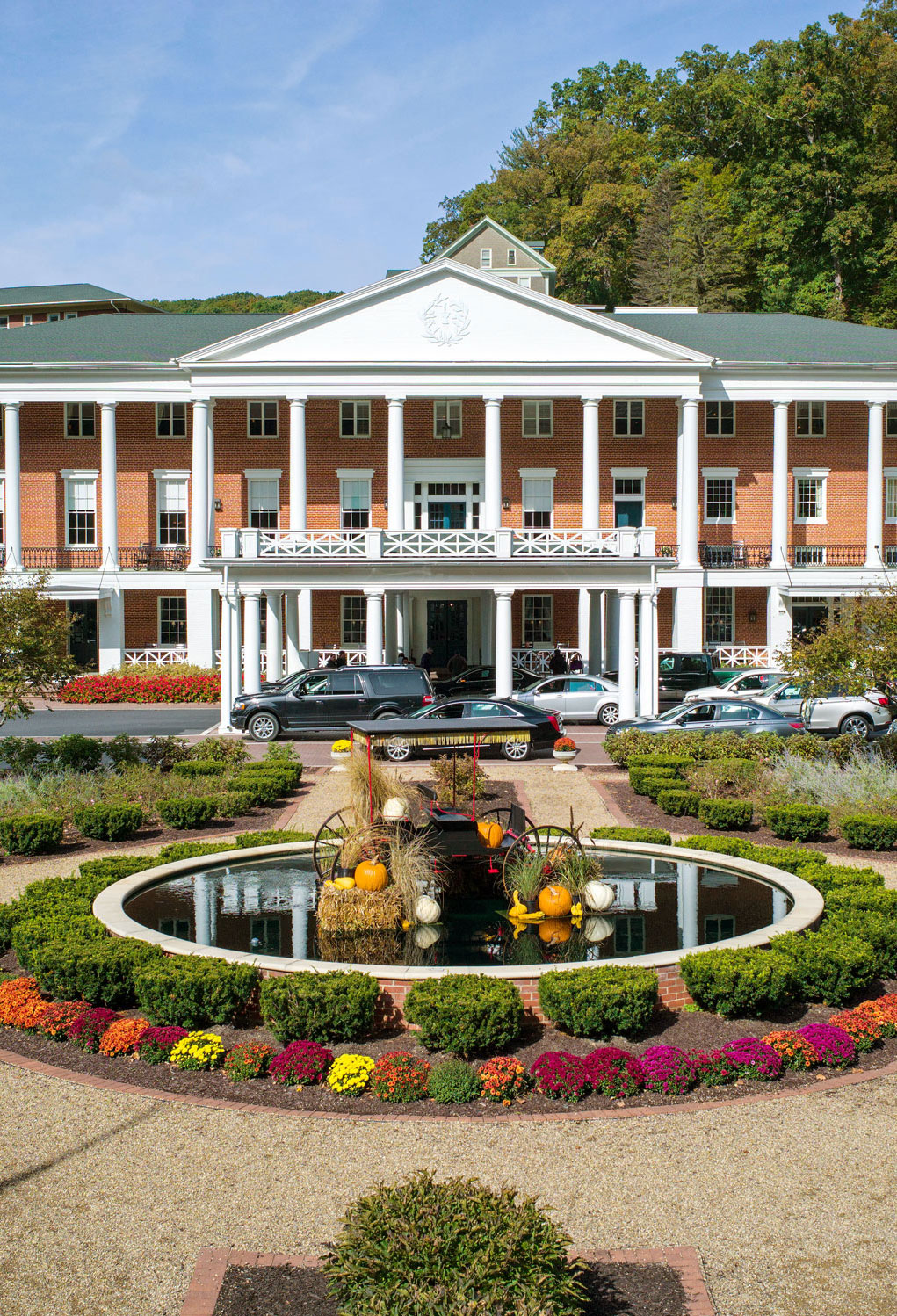As anyone who’s watched The West Wing can tell you, there’s a lot on your plate when you’re the U.S. President. And yes, even Commanders-in-Chief need a little R&R sometimes. But where do you choose as a vacation spot when you hold the highest office in the land? From a seaside resort on the Jersey shore to a ski resort in Colorado, here are 10 destinations that bear the presidential seal of approval.
Hotel Colorado – Glenwood Springs, Colorado
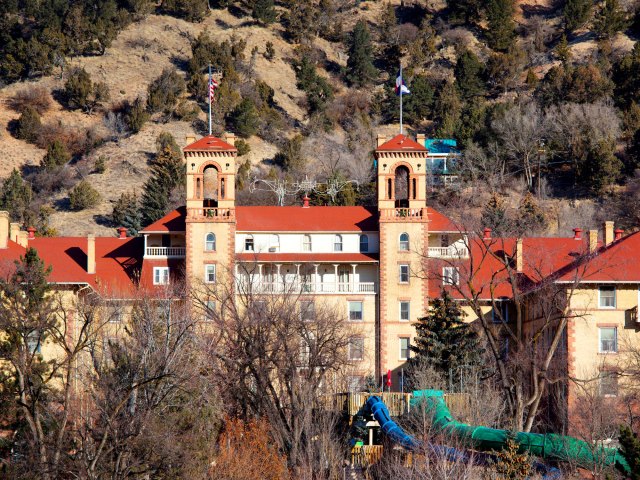
Long before President Ford hit the slopes in Vail, another American president made Colorado a preferred vacation destination. Outdoorsman Theodore “Teddy” Roosevelt visited Colorado seven times during his 1901-1908 tenure as the nation’s 26th president. His longest stay was at the Hotel Colorado in Glenwood Springs, where the rough-and-tumble Republican brought friends and associates on a six-week trip to hunt bears.
The Medici-inspired hotel was the “Grand Dame of the Rockies,” hosting royalty and celebrities who came for the crisp mountain air and the healing waters of the town’s hot springs. Following extended visits by Roosevelt and his successor, President William Howard Taft, the hotel earned the nickname “Little White House of the West.”
Camp David – Frederick County, Maryland
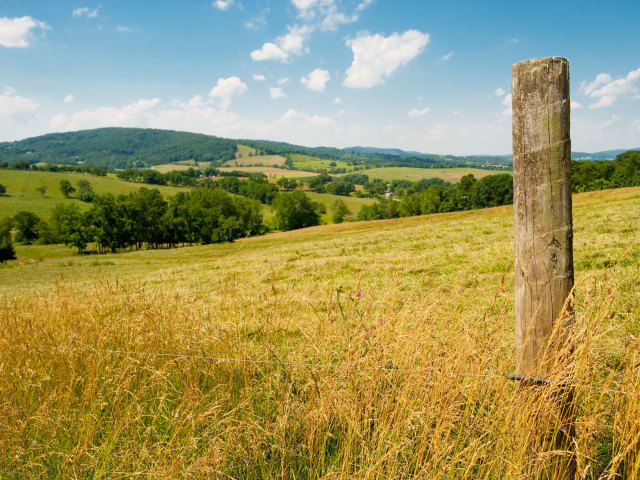
About 60 miles northwest of Washington, D.C., is the official “country home” of the sitting U.S. President. Camp David was initially dubbed “Shangri-La” by its first resident, President Franklin D. Roosevelt, who modeled the main house after his vacation home in Warm Springs, Georgia. The famously plain-spoken President Dwight D. Eisenhower found the name “a little too fancy,” and renamed the 200-acre property in Maryland’s Catoctin Mountain Park in honor of his grandson, David.
The grounds include 11 residence cabins as well as a swimming pool, bowling alley, skeet shooting range, and helipad. Numerous foreign leaders have been entertained at Camp David, including the Soviet Union’s Premier Nikita Khrushchev during the height of the Cold War.
State Game Lodge – Custer, South Dakota
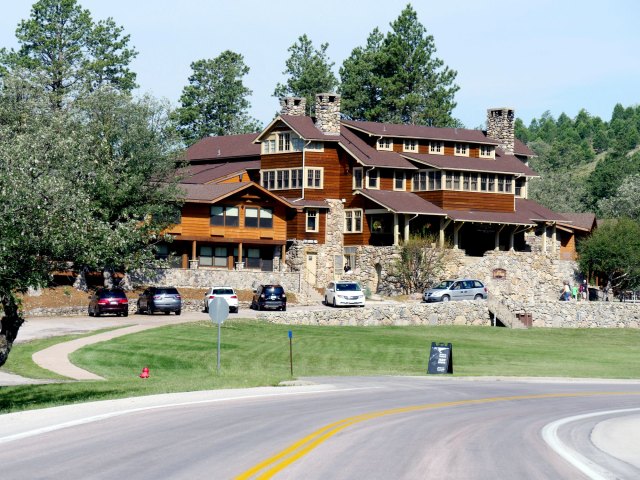
In 1927, the West was expanding and vacationers were hitting the road in newfangled automobiles when Calvin Coolidge, America’s 30th President, decided to see the booming region and escape the muggy summer weather of D.C. Initially planning on a three-week stay in the Black Hills of South Dakota, the President and his family liked the State Game Lodge in the small town of Custer so much that they extended their visit for three months — a huge boon for the state’s fledgling tourism attractions.
In addition to fishing and horseback riding, Coolidge officially dedicated the inaugural work on the nearby carving of Mount Rushmore, and declared that he would not seek another term in 1928. He wasn’t the only American President to succumb to the area’s charms; President Dwight D. Eisenhower also stayed at the lodge for three days in 1953. Want to see the area’s majesty for yourself? Book a room or specialty cabin at the lodge and don’t skip the popular Buffalo Safari Jeep Tour.
Congress Hall – Cape May, New Jersey
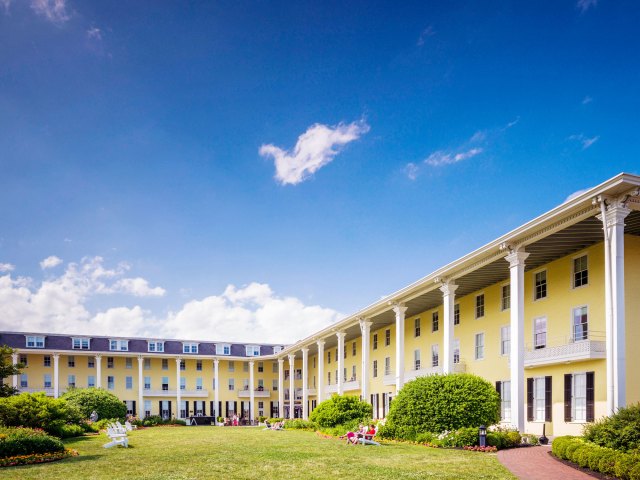
Built in 1816 in the heart of Victorian Cape May, Congress Hall claims to be “America’s First Seaside Resort” and has been a favorite vacation spot for U.S. Presidents throughout many administrations. President Benjamin Harrison made the hotel his official “Summer White House,” and Presidents Franklin Pierce, James Buchanan, and Ulysses S. Grant vacationed here, conducting business in the classic estate and smoking cigars on the Grand Lawn. Located right across the street from the Atlantic Ocean, Congress Hall is less than 200 miles from the nation’s capital and routinely earns a spot on various “best hotels” lists on the Eastern Seaboard.
Lincoln’s Cottage – Washington, D.C.
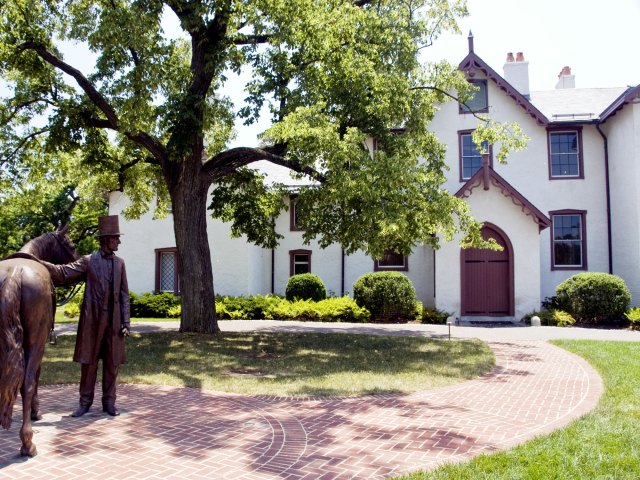
Much closer to the office (just three miles from the White House) is President Abraham Lincoln’s summer retreat — a 34-room, Gothic Revival-style “cottage” that was originally a home for elderly and wounded soldiers. The President commuted by horseback to the White House (surviving a sniper’s assassination attempt) but also worked on legislation at the hilltop home, including the Emancipation Proclamation. Today, President Lincoln’s Cottage is a historic site and museum dedicated to Honest Abe’s life and legacy, with galleries and extensive exhibits that focus on decision-making, dialogue, and social justice.
Martha’s Vineyard – Massachusetts
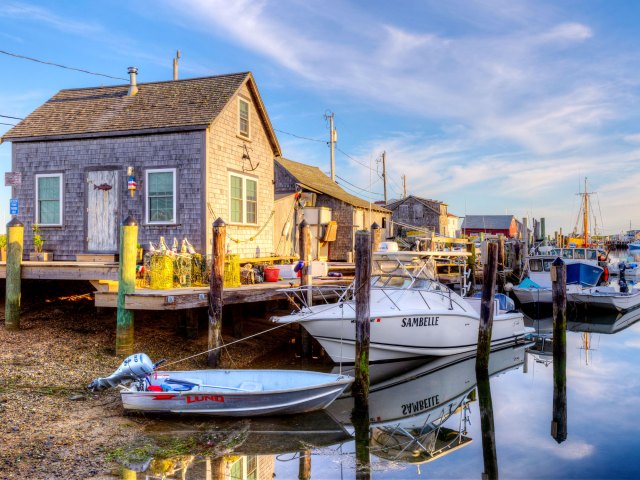
This charming (and expensive) island just south of Cape Cod is used to hosting U.S. Presidents: President Ulysses S. Grant arrived in the summer of 1874, enjoying fireworks and fishing, and the parade of POTUSes hasn’t stopped since. President Bill Clinton and President Barack Obama have both vacationed frequently in private houses — playing golf, browsing bookstores, and making ice cream runs just like other island regulars. And the private Kennedy family compound in Hyannis Port is only an hour (by ferry) away.
Little White House – Key West, Florida
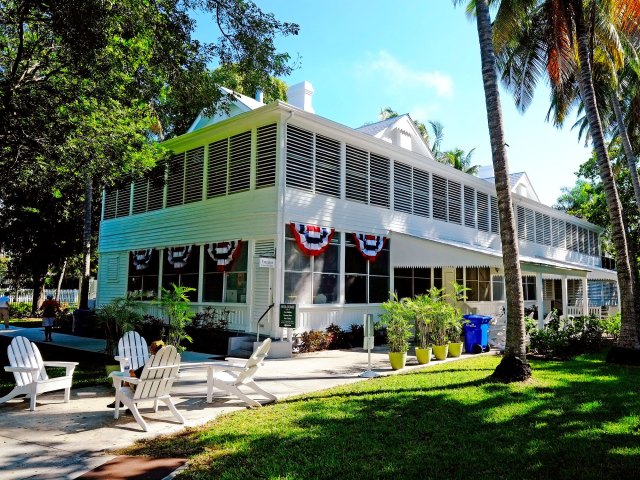
A naval officer residence at the end of the Overseas Highway was a welcome escape for President Harry S. Truman, who spent no less than 175 days during 11 working vacations at his “Little White House” in Key West’s Old Town. The structure built in 1890 saw many critical developments during Truman’s presidency, including the development of the Marshall Plan to rebuild post-WWII Europe and deliberations over the fate of Palestine.
Subsequent Presidents including Eisenhower, Kennedy, and Clinton also visited the home. Turned over to the State of Florida in 1987, the Little White House is now a state historic site and museum. If you take the guided tour, you’ll see Truman’s famous desk sign proclaiming, “The Buck Stops Here.”
Rapidan Camp – Madison County, Virginia
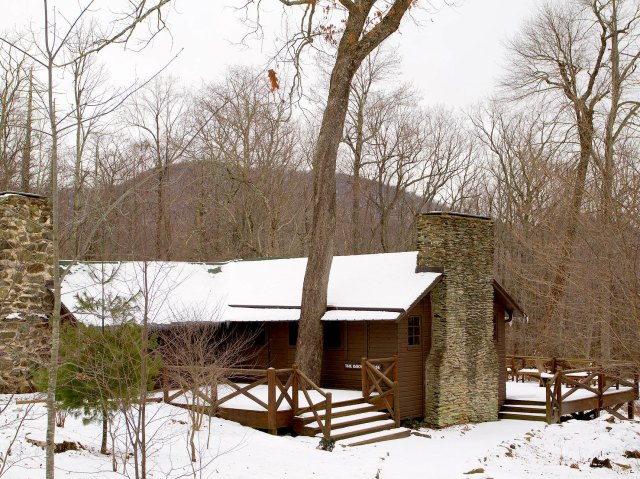
In 1929, President Herbert Hoover and his wife Lou Henry bought and designed this rustic retreat in what is now part of Shenandoah National Park in Virginia. Where two springs join to form the Rapidan River, engineers struggled to create 13 separate structures connected by a series of bridges and paths. The First Couple entertained a host of celebrities in the log cabins, including Charles Lindbergh, Will Rogers, and Thomas Edison in addition to Cabinet members and family and foreign dignitaries such as British Prime Minister Ramsay MacDonald.
Although the Hoovers donated the property hoping it would be used by future heads of state, the remote location and rustic accommodations were not appealing to President Franklin D. Roosevelt. All but three of the original structures were demolished by the National Park Service in 1959.
Western White House – Vail, Colorado
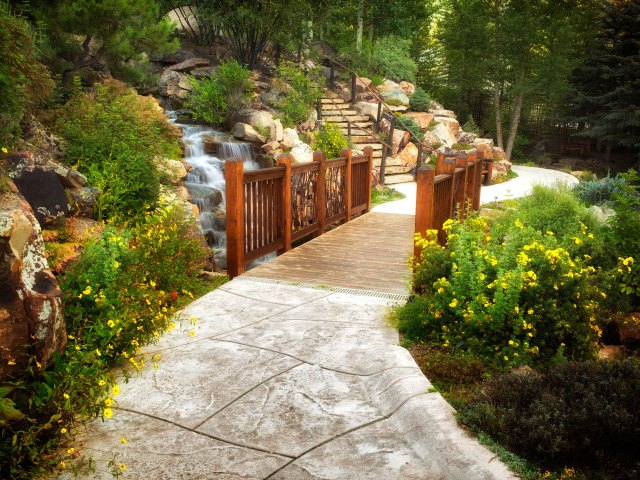
Both President Gerald Ford and his wife Betty were avid skiers, so they bought a condo in the developing resort village of Vail in 1970, long before Congressman Ford was chosen to be the vice president (who would later take office when President Richard Nixon resigned). As commander-in-chief, Ford often returned to Vail, bringing along a group of Secret Service agents who could keep up with him on the slopes.
After leaving the White House, the Fords retired to a luxurious home in the nearby enclave of Beaver Creek. Today, the couple is memorialized in Vail with the Gerald R. Ford Amphitheater and the Betty Ford Alpine Garden, the highest botanical garden in the United States.
Bedford Springs Resort – Bedford Springs, Pennsylvania
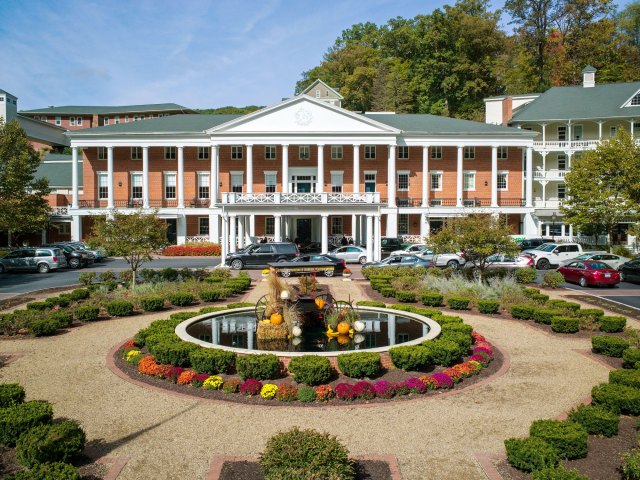
Mineral-rich hot springs in the Allegheny Mountains have lured a succession of commanders-in-chief to Pennsylvania’s exclusive Bedford Springs Resort. In 1821, President James Buchanan made his first visit, and would return for 40 summers. The resort served as the 15th President’s “Summer White House” during his term in the 1800s, and Buchanan received the first transatlantic cable in the hotel’s lobby in 1858.
Other U.S. Presidents who have made themselves at home at the luxurious hotel (which had one of the nation’s first indoor swimming pools as well as one of the earliest golf courses) include former Presidents Andrew Jackson, John Tyler, James K. Polk, Zachary Taylor, James Garfield, and William H. Taft.
More from our network
Daily Passport is part of Inbox Studio, an email-first media company. *Indicates a third-party property.






